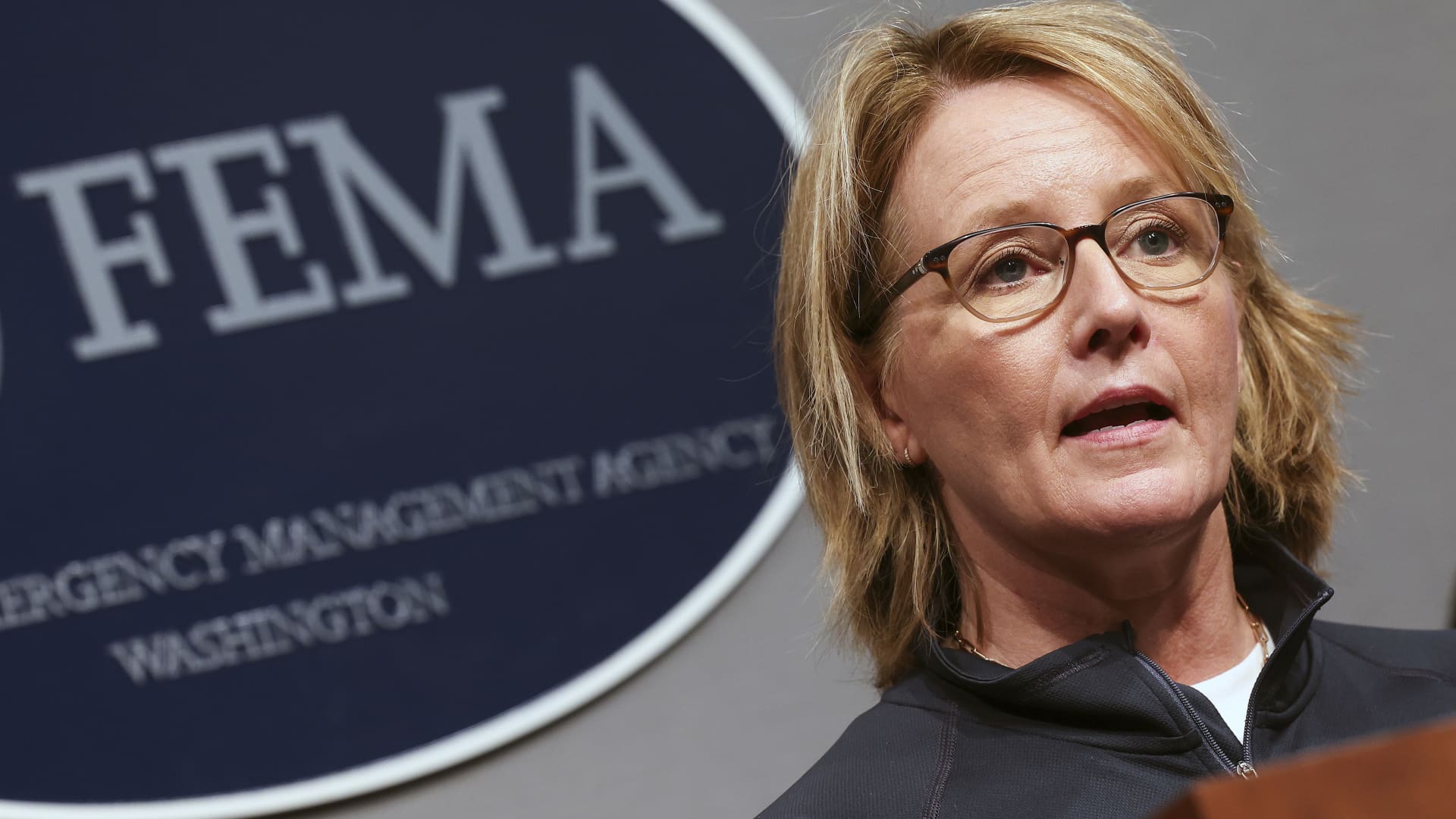Federal Emergency Management Agency (FEMA) Administrator Deanne Criswell holds a press conference on Hurricane Ian at FEMA Headquarters on September 28, 2022 in Washington, DC.
Kevin Dietsch | Getty Images
FEMA Administrator Deanne Criswell described harrowing conditions in Maui after wildfires left at least 96 people dead, the deadliest American wildfire in over a century.
“Nothing can prepare you for what I saw during my time here and nothing can prepare them for the emotional toll of the impact that this severe event has taken,” Criswell told reporters at the White House Monday, speaking over video from Hawaii.
She said there are more than 300 FEMA employees on the ground, who have served 50,000 meals, 75,000 liters of water and distributed 5,000 cots and 10,000 blankets. FEMA has yet to put out initial estimates of what the cost of the wildfires will be but others have placed the cost around $5.6 billion. [LINK]
“It’s really far too early to tell what the total cost is going to be,” Criswell said. “As we continue to get better fidelity on the impact as we can get into the area and assess the true extent of infrastructure damage, that’s when we’ll have a better idea of what the total cost will be.”
Blocks of homes have been turned to ash and rubble from Tuesday’s wildfire.
Robert Gauthier | Los Angeles Times | Getty Images
FEMA has now begun to transition survivors from shelters to hotel rooms.
“This will allow them to move from shelters into pre-identified hotels or motels temporarily as they develop their long term housing strategies,” said Criswell.
Criswell said the states Governor Josh Green is also working with Airbnb to provide rooms for displaced Hawaiians as well.
“We are already seeing a tremendous amount of resiliency across the community because they are coming together to support each other as they work through what this is going to look like in the future.”
Criswell said search and rescue efforts continue but are impacted by the hazardous conditions. Maui Police Chief John Pelletier said on Saturday that search dogs have only gone through 3% of the disaster area in the historic town of Lahaina so far.
“We want to make sure that we’re doing this as quickly as possible but that we do it in a way that’s methodical and appropriate and culturally sensitive to make sure that we are going to be able to account for everybody,” Criswell said. “So we need to give them the space and time to do that.”

